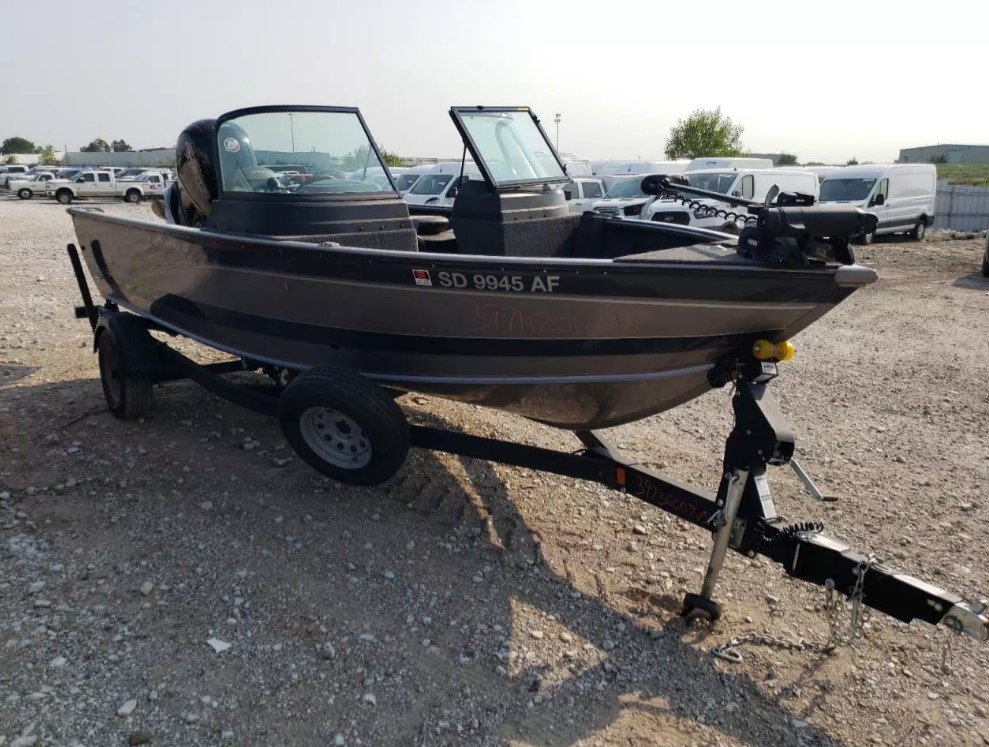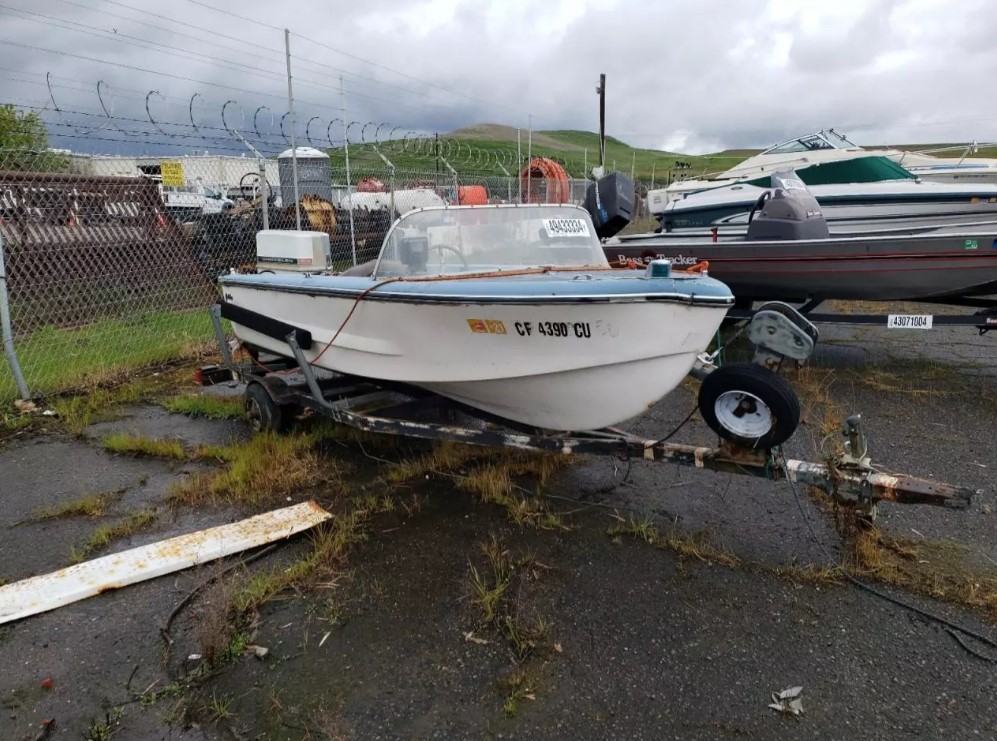As an adventurous boater or a savvy buyer, seeking a real bargain at salvage auctions can prove very intriguing. Salvage auctions do offer a wide choice of boats, ranging from those which just require some minor damages to those requiring greater repairs. Salvage auctions, however, have their special problems that one should learn of before buying from such an auction as not to spend too much money and fall prey to costly blunders. Here are five common mistakes that people make in buying boats at salvage auctions-mostly, in places like boat salvage yards and especially in boat auctions in Florida.
1. Not Researching the Boat’s History
The biggest mistake a buyer of a salvage boat typically makes is that he does not research the background of the salvage boat in question. Salvage boats usually have a history of accidents, environmental damage, or mechanical failures which led to them being sold at salvage. Knowing the boat’s history can give you insight into what repairs will be necessary and what challenges you might be facing.
Tips:
- Obtain the Hull Identification Number and run a background check.
- Demand all available records, including service history and previous insurance information.
- Be cautious when the boat has structural issues like breaches in the hull, as these can be costly to repair.
- Researching a boat’s past will give you a much better insight into whether or not it is a good investment or a money pit

2. Underestimating Repair Costs
It’s easy to go in there and get a boat when the price is low, but what happens is a complete surprise when it comes time to have it repaired. One big mistake made by most boat salvage yards is that they grossly underestimatethe time and effort involved, as well as the cost of repair. Some of the boats will appear fairly good on the surface but have many hidden problems that require a lot of time, effort, and resources to make them seafaring again.
Look For:
- Engine Damage: A boat with an engine problem can be a very costly repair job. Compute the cost of replacement parts and/or a new engine.
- Hull Repairs. The structural damage to the hull will be costly, and glass and aluminum hull repairs will require labor that requires special expertise.
- Electronics and Wiring: The saltwater will naturally corrode most electrical systems within the boat, and you may need to rewire or even replace your navigation and electrical systems.
Invite a mechanic or marine surveyor to appraise the estimated cost to repair. This may cost a small amount of money but less what you might end up paying if some costs come you weren’t expecting.
3. Inadequate documentation and provisions
Legal Paperwork When purchasing salvage boats, one should be aware of the legal aspects of the sale. Most of the time, the people buying at the boat auctions in Florida get so confused by the physical condition of the boat that they forget about the legality of the transaction. Salvage boats usually have a variety of legal conditions attached. When legal paperwork is not followed as it should be, a number of legal problems often await.
Key Documents to Consider
Salvage title: Make sure your boat has a salvage title, which will make its registration and insurance somewhat complicated.
- Bill of Sale: This serves as the proof of ownership. You will require it both in the transfer of title and when trying to sell the salvage boat later on.
- Insurance and Registration: Research the special local regulations that may influence registration and insurance of salvaged boats in your area.
- Documentation is particularly important to any buyer of boats to be restored and sold or used for a long time. A missing or lacking some of the documentation causes a delay in the registration of a boat and sometimes makes it impossible. You might end up with a vessel that you cannot legally operate.
4. Failure to include an Exhaustive Inspection
In an enthusiasm of an auction, some bidders forget the detailed inspection in the pursuit of finding hidden problems that could otherwise not be noticed. Salvage boats normally do not see easy going; it could be a collision or damage resulting from the storm, or years of negligence. Investigating every little detail of the boat before you place your bid could save you from any shockers.
Inspection Tips:
- Structural Integrity: Inspect the hull for cracks, holes, or weaknesses that might compromise safety.
- Engine and Motor Condition: Even if the boat has an engine running, inspect for signs of water damage and rust to judge if it’s likely to fail shortly after the purchase.
- Mold and Water Damage: Boats kept outdoors in storage may suffer from mold or mildew, especially around cabins or upholstery. Severe mold can be a sign of a more extensive water damage problem.
- Electrical Systems: Inspect the electrical components, like lights, bilge pumps, and more. Water intrusion or neglect could compromise any of these electrical systems.
If you are not very familiar with inspecting boats, consider engaging a surveyor or a marine mechanic to scrutinize the boat’s condition for you. This may especially be necessary when buying a boat from Florida boat auctions, where the competition is stiffer and conditions are different.

5. Making a High Price Bid in the Frenzy of the Auction
Being emotion-based is one of the biggest mistakes during salvage auctions. Competitive auctions can sometimes tempt the buyer to raise their bid over what they had initially planned for, especially if they’re hell-bent on acquiring a certain boat. Overbidding could mean a bigger first-cost and the advantages you’ll gain from the purchase at the auction could be nullified.
How to Stay Disciplined:
- Set a Budget: Before the auction, set a maximum price based on research and estimated repair costs. You have to stick to it regardless of what happens.
- Factor in Hidden Costs : This also involves costs above the price you paid at the auction. These include transportation, storage, registration, and repairs.
- Know When to Walk Away: If it bids over budget or there are too many bidders for a particular boat, walk away. There will always be other auctions and other boats.
Bidding strategy will prevent buying remorse. With salvage boat auctions coming in regularly, waiting for the right opportunity is better than overspending on one boat.
Final Thoughts on Buying Boats from Salvage Auctions
However, salvage auction boat prices are truly very cheap only if you know what you’re doing. A salvage auction boat sale might satisfy one in saving some dollars in learning the restoration process and even finding a peculiar vessel with character. The problem is, however, planning properly for the said auctions. “Boat salvage yards and boat auctions in Florida offer so many bargains, but you have to inspect and examine because that’s where most people get it wrong,” it’s noted.
The key is to research the history of each boat, understand repair costs, ensure all the paperwork is in order, inspect it thoroughly, and set a very strict budget. You will have to be patient, disciplined, and not hesitate when you decide to walk away. With these precautions, you might not end up with an expensive blunder, and you’ll enjoy your time out there.
0 Comments